Luisa Ortega: Venezuela's chief prosecutor
- Published
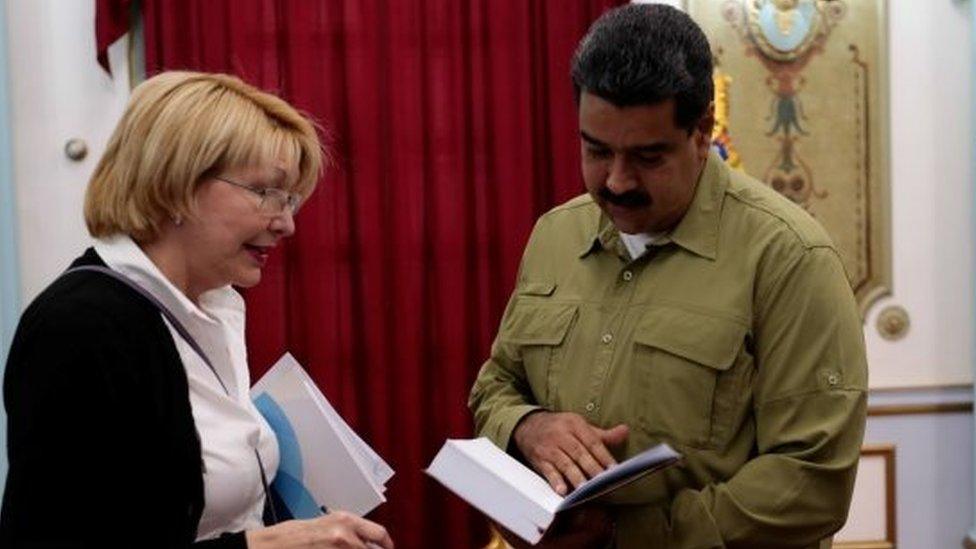
Luisa Ortega was long seen as a staunch ally of President Maduro
Venezuela's chief prosecutor, Luisa Ortega, has emerged as a key figure in the country's politics in recent months. BBC News takes a closer look at the 59-year-old lawyer and how she went from being seen as an ally of President Nicolás Maduro to one of his most outspoken critics.
Luisa Ortega was appointed to the post of chief prosecutor by the National Assembly in December 2007, when the legislature was still controlled by the governing socialist PSUV.
One of the most influential politicians in the PSUV, Diosdado Cabello, appointed her and for years she was seen a staunch ally of President Hugo Chávez and his successor in office, Nicolás Maduro.
It was Luisa Ortega who announced in 2014 that opposition leader Leopoldo López had been charged with public incitement and conspiracy over his role in a wave of protests at the time.
Watch: Venezuela crisis: What's going on?
What lies ahead for divided Venezuela?
Mr López was later found guilty and sentenced to more than 13 years in jail, a move widely condemned by human rights groups and international leaders who said it was politically motivated.
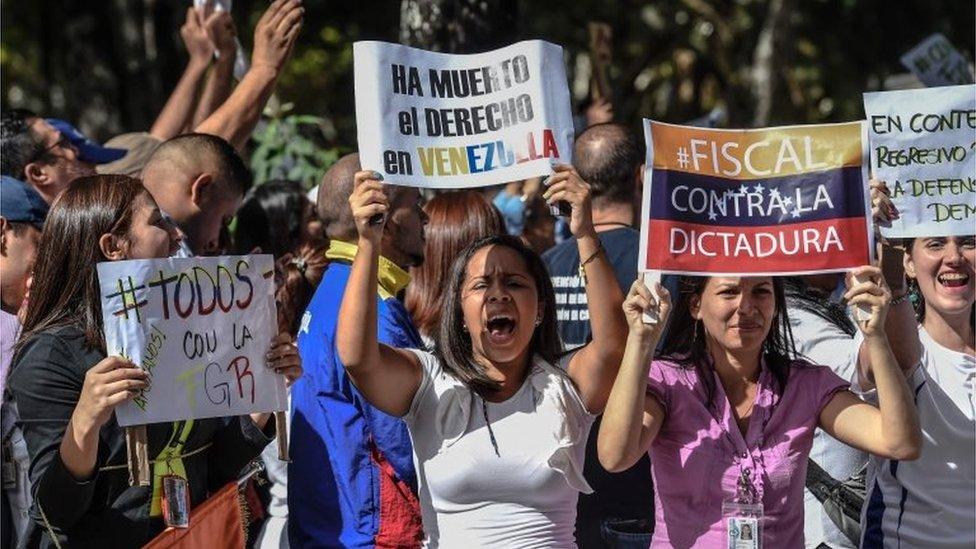
Employees from the chief prosecutor's office have backed Ms Ortega
But in March 2017 she broke rank with the government when she said that a Supreme Court ruling stripping the opposition-controlled National Assembly of its powers was unlawful.
The news conference she gave, constitution in hand, and with members of her team standing behind her, caught the government by surprise and delighted members of the opposition.
Speaking out
It was just the first in a series of news conferences during which she became increasingly direct in her criticism of the government.
On 19 April, she published a statement defending the right of citizens to hold peaceful protests.
Ms Ortega also publicly contradicted government ministers when she announced that 20-year old protester Juan Pablo Pernalete was killed by a tear gas canister fired by the National Guard.
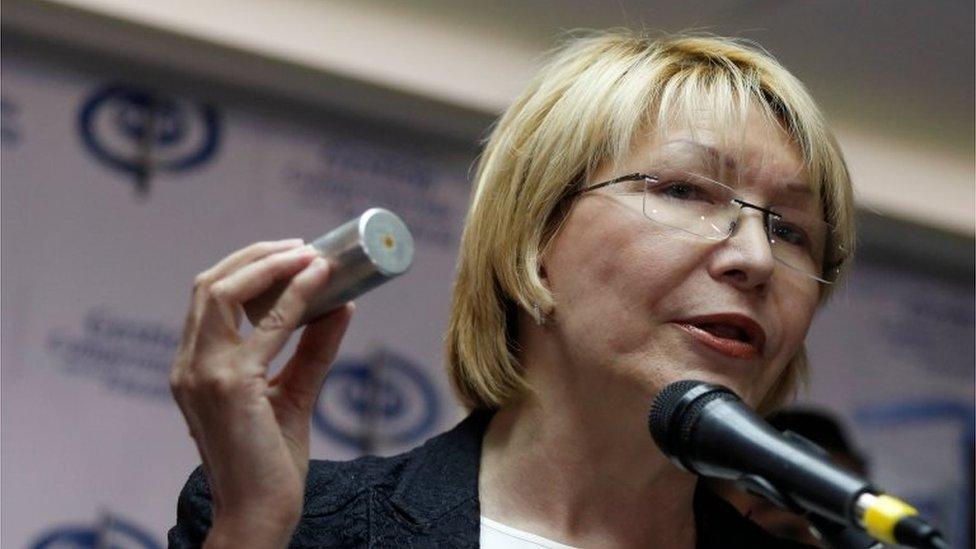
Ms Ortega showed the type of teargas canister which killed Juan Pablo Pernalete
The foreign minister at the time, Delcy Rodríguez,and Information Minister Ernesto Villegas had said that evidence suggested he was shot with a bolt gun by fellow protesters.
In June, she filed a challenge against President Maduro's plan to convene a constituent assembly.
Labelled a traitor
The Supreme Court rejected it but her legal challenge prompted vitriol from socialist party officials who labelled her a "traitor" and even questioned her sanity.
A lawmaker for the socialist party, Pedro Carreño demanded that she should submit to a "psychological evaluation".
Ms Ortega said that in the wake of her criticism of the government, her family had been threatened. "They harass them. They follow them, patrol cars that look like [the Venezuelan intelligence service] Sebin," she said.
At the end of June, Venezuela's Supreme Court paved the way for a possible trial of Ms Ortega on charges of "threatening public ethics and administrative morals" and of "violating and threatening the fundamental principles of the constitution".
The court also banned her from leaving the country and froze her assets.
Her powers were also curtailed when the Supreme Court transferred some of her post's duties to the ombudsman, a government loyalist.
Ms Ortega said the move was part of an attempt by the government to abolish her office.
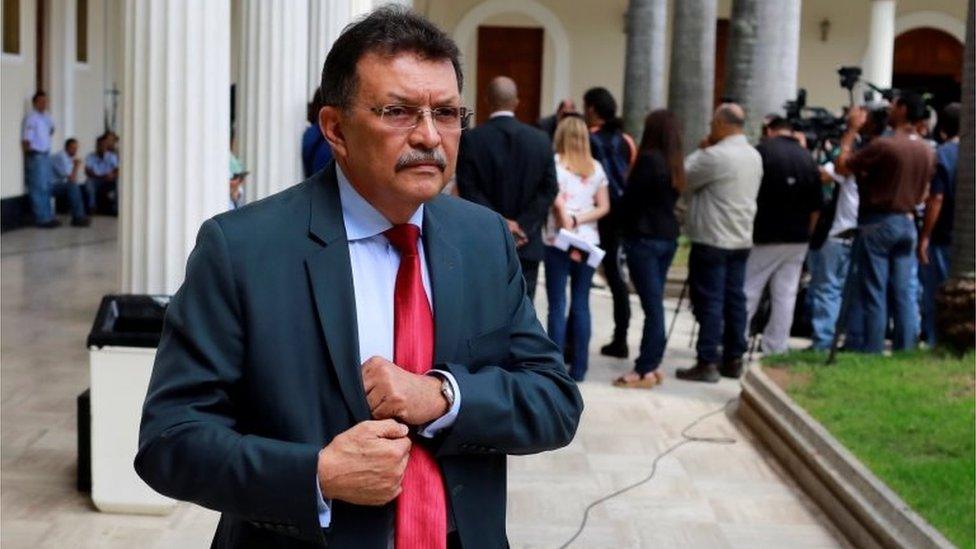
Ms Ortega is married to Germán Ferrer, a socialist party lawmaker who recently spoke out against the constituent assembly
She also refused to attend a hearing on 4 July which was called to determine whether she should stand trial for alleged malpractice. "I'm not going to validate a circus whose decision is already made [against me]. I don't recognise them!" she said.
Most recently, she has been highly critical of election held on 30 July to choose members for the controversial constituent assembly convened by President Maduro.
Ms Ortega has called for an independent audit of the vote after allegations the figure for the turnout had been inflated.
Her trajectory from party loyalist to thorn in the side of the government has made her future very uncertain.
A close ally of Mr Maduro, Jorge Rodríguez, said it was only a matter of time until she would be removed from her post.
"She is the past," the influential politician said.
Ms Ortega has insisted that it is not her who has changed but those around her. "I've always been the same. The ones who have changed are the others," she told CNN.
"Look up my stance since I was named as chief prosecutor and you'll see I've always maintained the same position."
- Published3 August 2017
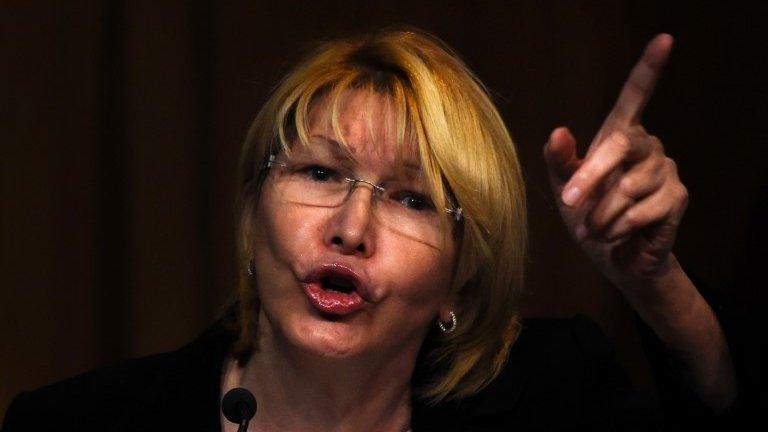
- Published29 June 2017
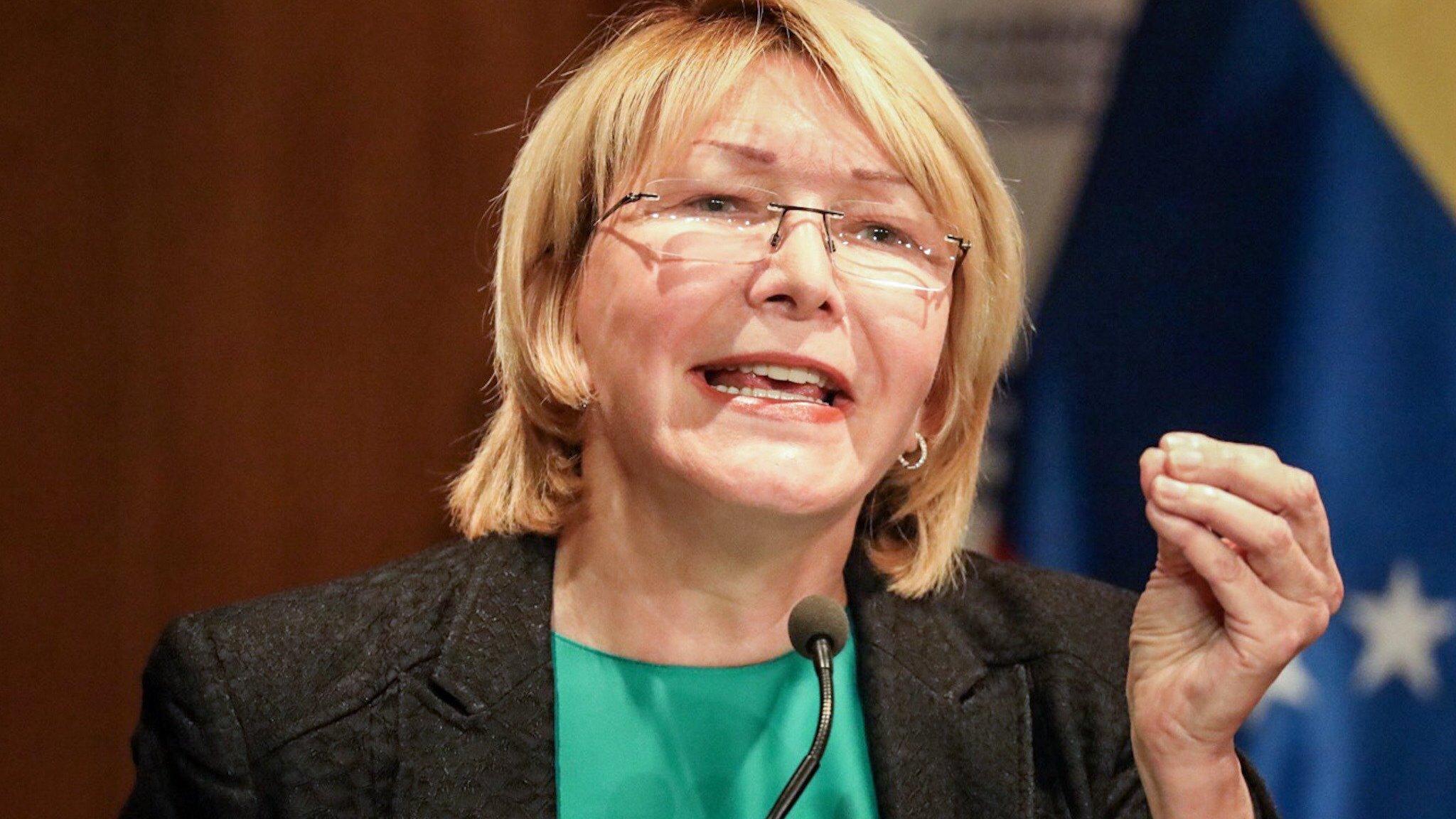
- Published21 June 2017
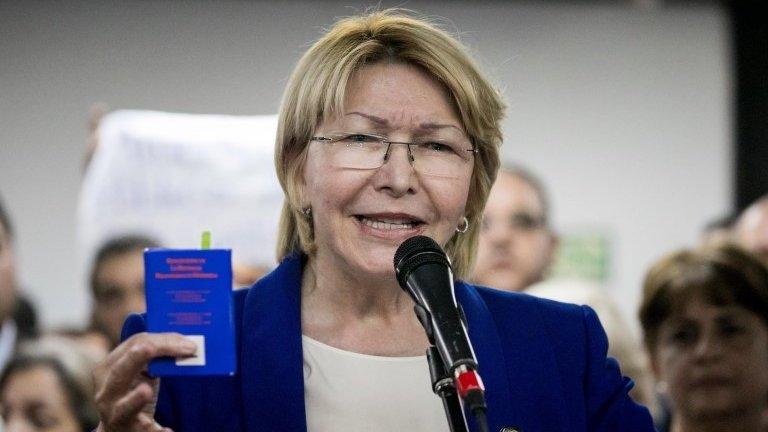
- Published13 June 2017
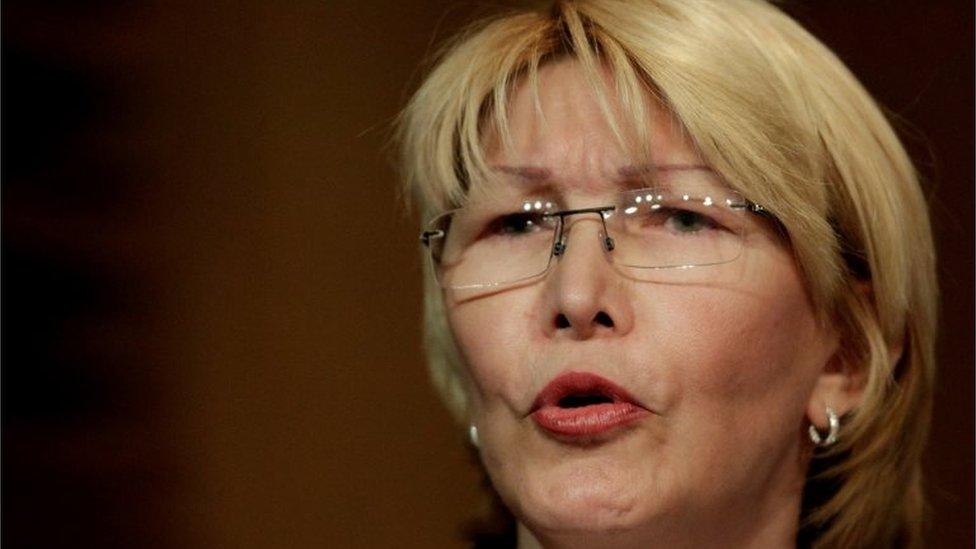
- Published24 May 2017
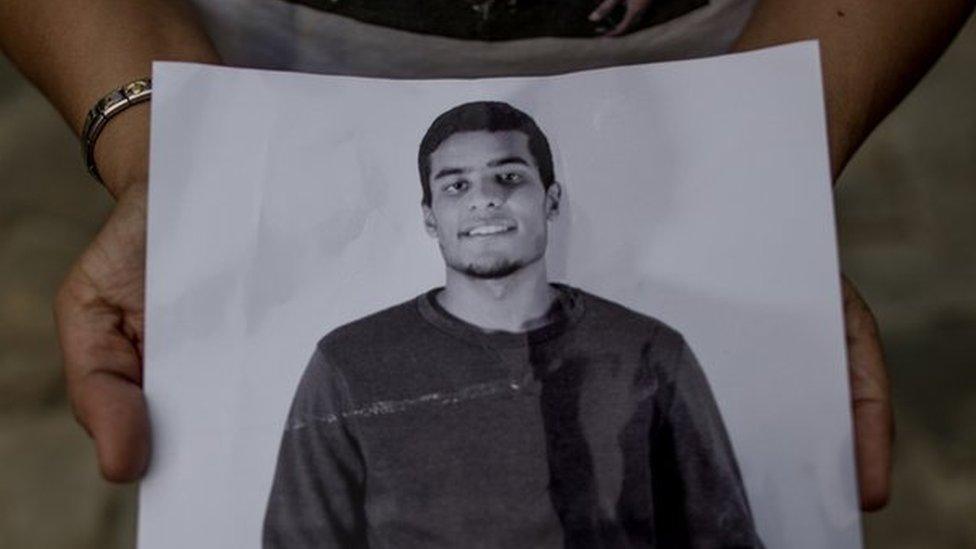
- Published31 March 2017
